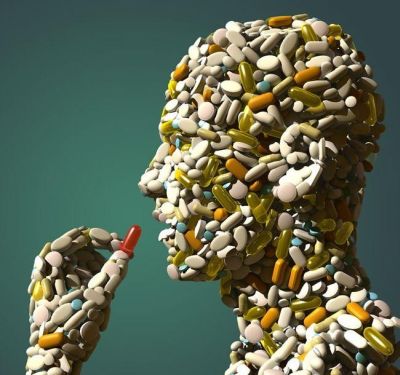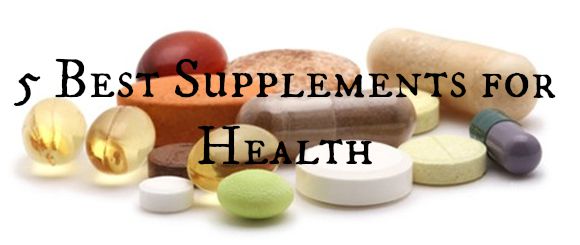As you know from a previous post, I find supplements to be an important insurance to our health. However, I do believe that the quality and quantity of supplements we take can either hurt or help our health.
There was a bit of a supplement craze within the past 5-10 years, and everyone was buying supplements and taking various different forms of supplements to help with anything from improving memory to improving joint or eye health, and for some protect against skin, prostate or breast cancer. Most of these supplements were only contributing to those health woes or scares, and were interfering with prescribed medicines or other dietary supplements.
Not all supplements are created equally, and typically the cheaper the supplement the worse it is for you, sadly. We have heard it time and time again, “We are what we eat,” so it’s no surprise that by taking 10 different supplements, of poor quality everyday we are becoming an nutrient deprived, preservative, chemical filled junky.
I never bought into the whole take this and this and this for that and that and that craze. However, there are beneficial supplements we could all be taking to help improve our health and protect against nutrient deficiencies, especially if we have special diets, such as vegan or vegetarian, or certain medical conditions that hamper absorption of certain minerals like celiac or chrons disease.
Now that I got that out of the way, I can share with you the supplements most of us should be adding to our diets. It’s hard to get a balanced diet in today’s culture, because of our time pressed lives, the quality of our food, and the lack of healthy options at times. Our food is less and less nutritious for various reasons (i.e. soil erosion, depleted minerals in soil, preservatives and additives), but I won’t dive into that (maybe a later post).
To ensure we are getting all that we need to thrive and remain healthy, and hopefully sickness free, some supplements we may need to take in addition to a balanced, wholesome diet. These are my “best supplements” for health, and ones I take on a daily basis as a sort of insurance.
1. Omega 3 & 6 – Also known as EFA’s (Essential Fatty Acids) are important to brain health and joint health. They build health cells and are needed for healthy brain and nerve function. They help to ward off inflammation as well. Omega’s are not produced by our bodies, rather found in food sources. Foods rich in omega fatty acids are fish, nuts, flaxseed, hemp seeds, chia seeds. Studies show they lower risk of heart disease, protect against Alzheimer, and age related brain decline. Supplements may be needed if you don’t eat a significant amount of fish or nuts. I love Barleans Omega Swirl, and they have a vegan omega fatty acid blend as well.
2. Multivitamin or Prenatal – A multi-vitamin is a great form of insurance for our health, in that it supplies us with all the minerals and vitamins we may be missing from our diets. It makes sure we have adequate levels. Don’t buy cheap brands, instead look for brands that are preservative free, yeast free, dye free, and with no synthetic fillers.
3. B complex -These are especially important for vegetarians and vegans, especially B12. All the B vitamins have to be in sufficient amounts to be working properly in our body, and to allow for absorption of B vitamins. I take a complex, as I don’t eat a lot of meat products (it’s very rare if I do). B vitamins help with memory, stress, anxiety, depression, mood and energy. Especially important to those who are suffering adrenal fatigue.
4. Vitamin D3 – I recommend this for everyone, even those in sunny climates. Most of our vitamin D is absorbed through the skin from the sun. Sunscreen will block it’s absorption, and if we shower right after being in the sun, it can wash the D off before it has time to soak through the skin, according to some studies (It takes up to 48 hours for D to enter our bloodstream). Those in northern climates should most definitely take D, because they don’t see the sun near as much. There are food sources of vitamin D as well. Vitamin D is needed for proper bone growth, and helps the absorption of calcium. It is also important to immune function and inflammation. Liquid supplements are more beneficial.
5. Probiotics – Probiotics help to supply our body with healthy bacteria and restore our bacterial flora. I especially recommend this if you’ve been on antibiotics, which can destroy both healthy and unhealthy bacteria. Our gut flora is important for digestion, thus probiotics are great if one has digestive problems, such as diarrhea or constipation. Also, helpful for skin disorders and mental health. Find them in yogurts, kefir, koombucha, and other fermented foods.
Of course there may be occasions we need additional supplemental health, but these are the vitamins and supplements I take on a daily basis.
Disclaimer: I am not a doctor. I do not prescribe medications or treat medical conditions. These are only my recommendations for educational purposes. Please consult with your physician before taking any new supplements.
Until Next Time Be Whole and Be Fit
What supplements do you take on a daily basis?

